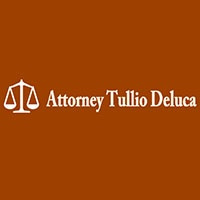Little Meadows Bankruptcy & Debt Lawyer, Pennsylvania
Tullio DeLuca
✓ VERIFIEDBankruptcy & Debt, Accident & Injury, Divorce & Family Law, Employment, Estate
Tullio DeLuca was admitted to bar in 1990 in Pennsylvania, US District Court, Middle, Eastern and Western Districts of Pennsylvania. Attorney DeLuca r... (more)
Molly Dempsey Clark
Election & Political, Family Law, Business Organization, Collection
Status: In Good Standing
Robert Eugene Peterson
Workers' Compensation, Insurance, Bankruptcy, Wrongful Death
Status: In Good Standing
Evan S. Williams
Family Law, Criminal, Bankruptcy, Accident & Injury
Status: In Good Standing Licensed: 55 Years
John Leonidas Tidball
Land Use & Zoning, Divorce & Family Law, Criminal, Collection
Status: In Good Standing Licensed: 25 Years
Judd B. Fitze
Industry Specialties, Business, Bankruptcy & Debt
Status: In Good Standing Licensed: 47 Years
Stephen Richard Turel
Traffic, Workers' Compensation, Criminal, Consumer Bankruptcy, Bankruptcy & Debt
Status: In Good Standing
Kelly Marie Carrubba
Other, Employment, Divorce & Family Law, Bankruptcy & Debt
Status: In Good Standing
Joseph Nicholas Demko
Litigation, Lawsuit & Dispute, Business, Bankruptcy & Debt
Status: In Good Standing


